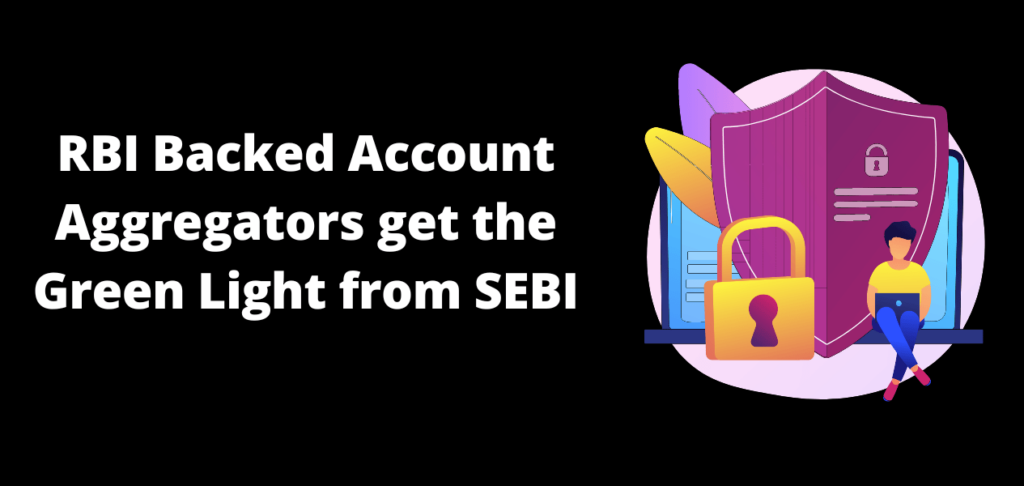According to Statista, 80% of Indian citizens have a bank account as of 2017. This number would certainly be higher today, partially because most of us maintain more than one bank account.
When a salaried employee has one salary account and another for savings, the ambiguity of expenses increases. Add a Neo bank account to the mix; it’s no wonder individuals start to tremble during IT returns season each July.
There are mutual funds, insurance, EMIs, loans, trading stocks, cryptocurrency, and various other ways to spend and save money. Hence, filing IT returns becomes an arduous undertaking every year.
Hiring a CA seems the obvious solution in such a situation, doesn’t it? But not anymore.
What if I told you there is a new way to access all your financial information in one place with just a click of a button? What if I told you the reputed Government entity “SEBI” has already joined hands with this entity?
SEBI has now given a nod to the account aggregators, which means that one can expect a boost to nationally regulated financial data sharing systems where consumers will now be able to share their information about banking accounts and mutual funds with their financial service providers.
Forget maintaining a spreadsheet of all your expenses, saving bank statements, and other transaction histories to monitor your risk factor because AA does it for you and now, it will be legal and critically eyed by the RBI.
What are Account Aggregators?
Account Aggregators are third-party intermediaries regulated by the RBI. AAs facilitate the connection of “financial information providers” (FIP) like mutual fund houses or banks with “financial information users” (FIU). FIUs are the CAs, and financial advisors discussed earlier. The beauty of AA is that individuals have complete liberty to opt for the service or take the traditional & tedious route of hiring a CA.
What is SEBI, and how is SEBI approving AA big news?
The fact that SEBI, Securities and Exchange Board of India, a reputed Government entity, has joined hands with AA is excellent news.
Under the new SEBI, AAs and FIPS & FIUs will have a more streamlined relationship.
- The FIU will initiate a request with the AA, asking them for all your relevant & latest financial information in real-time.
- The AA will check with the individual (you) via a mobile app and seek permission before sharing the information.
- Once you grant the permission, the AA will reach out to all the financial institutions (FIP) you’ve transacted with to procure information.
- The FIP will then share the tightly encrypted information with the AA.
- The AA then shares the encrypted information and passes it on to your FIU.
- Your FIU now has streamlined information on all your financial transactions.
During the transaction, the AA acts like a simple tech-pass-through entity and will not have access to your information at any given point.
The prerequisite to this transaction is that the FIP must be tied up with the AA to transact information seamlessly.
So how will the new set up help investors?
Instead of individuals scrambling to different places and accounts to gather their information -— they can get it all in one place. Since the Account Aggregators are responsible for building a comprehensive data ecosystem, this will allow different AAs like Onemoney and Finvu to digitize information sharing at the tap of a button.
Final Takeaway
Consumer information has always been important for financial institutions, be it financial advisors or bank officials. However, the information is hard to find and usually not accurate.
While account aggregators simplify this problem, the SEBI regulation is more likely to make it more streamlined and ensure data privacy for all!

